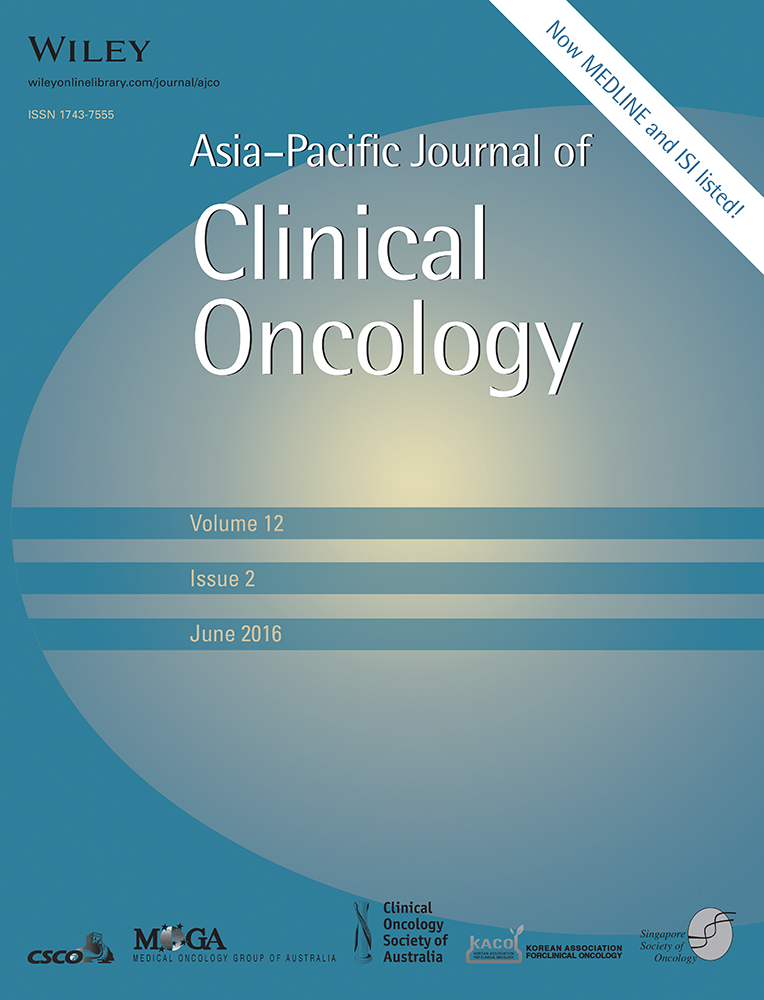A study on the association between hyperlipidemia and hypothyroidism and the response to TKIs in metastatic renal cell carcinoma
Conflicts of interest: Authors have no potential conflicts of interest to declare
Abstract
Aim
Vascular endothelial growth facto receptor–tyrosine kinase inhibitors (VEGFR–TKIs) are widely used for metastatic renal cell carcinoma (mRCC). The aim of this study was to investigate the association between the response to VEGFR–TKIs and hyperlipidemia and hypothyroidism.
Methods
Clinical data on 155 patients with mRCC treated with VEGFR-TKIs at the Cancer Hospital of Chinese Academy of Medical Sciences from 2006 to 2014 were retrospectively analyzed. All patients received first-line TKI therapy. Survival analysis was performed with a significance level of 0.05 using a Kaplan–Meier curve. The χ2 test was used for the intergroup comparison. The Cox regression model was used for the analysis of multiple factors affecting survival.
Results
The median survival for the whole group (n = 155) was 36.2 months. A total of 57 patients (36.8 percent) developed hypothyroidism and 85 patients (54.9 percent) experienced hyperlipidemia. The response rate (RR) and median progression-free survival (mPFS) for patients with normal thyroid function were 32.7 percent and 9.1 months, respectively, 54.5 percent and 13.7 months with grade I hypothyroidism, 70.8 percent and 23.8 months with grade II hypothyroidism (P values of 0.001 and 0.017, respectively). The RR and mPFS for patients with normal blood lipids were 23.9 percent and 8.0 months, respectively, 54.0 percent and 12.9 months with grade I hyperlipidemia, 60.7 percent and 14.0 months with grade II hyperlipidemia, and 100.0 percent and 22.2 months with grade III hyperlipidemia. Significant differences in the RR and mPFS were seen between groups (the P values were 0.000 and 0.005, respectively).
Conclusion
Hypothyroidism or hyperlipidemia may be effective predictive factors for response to treatment with VEGFR–TKIs in mRCC patients. Large-sample studies are warranted to further prove these results.




